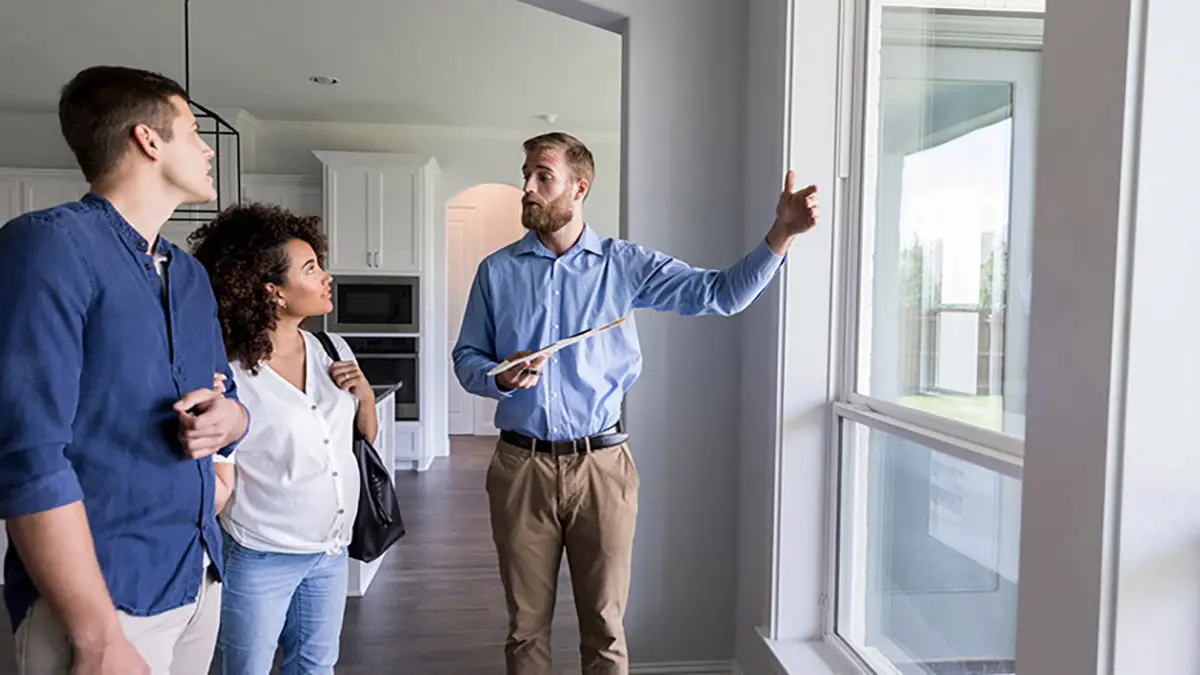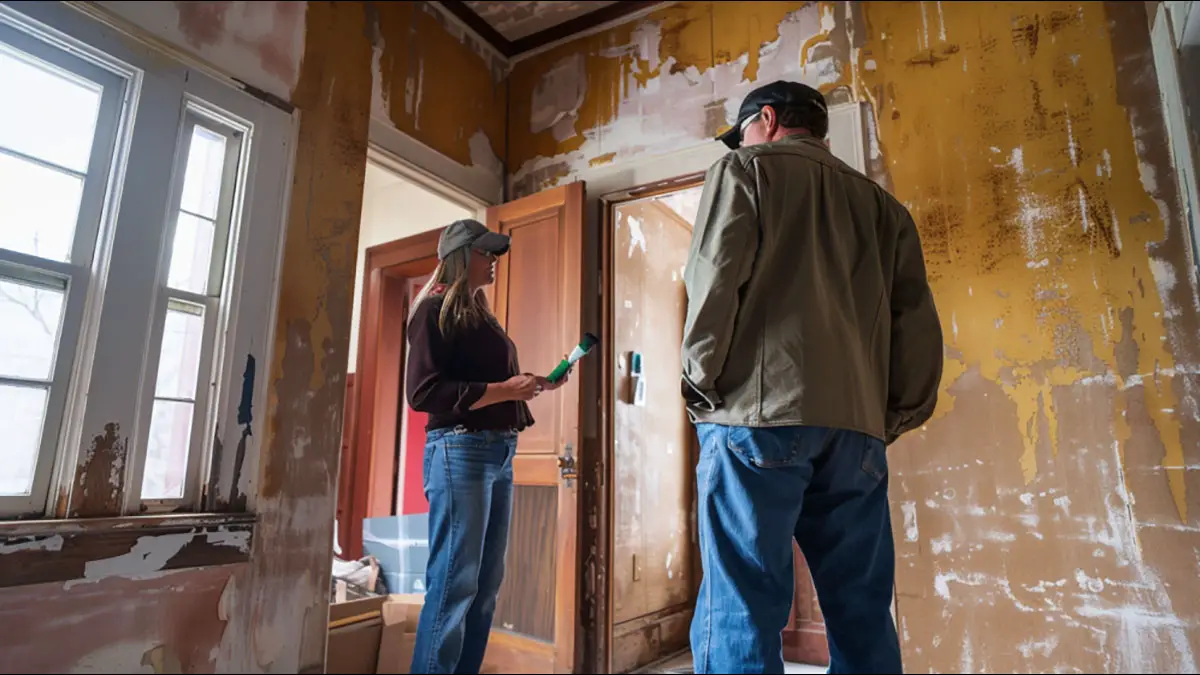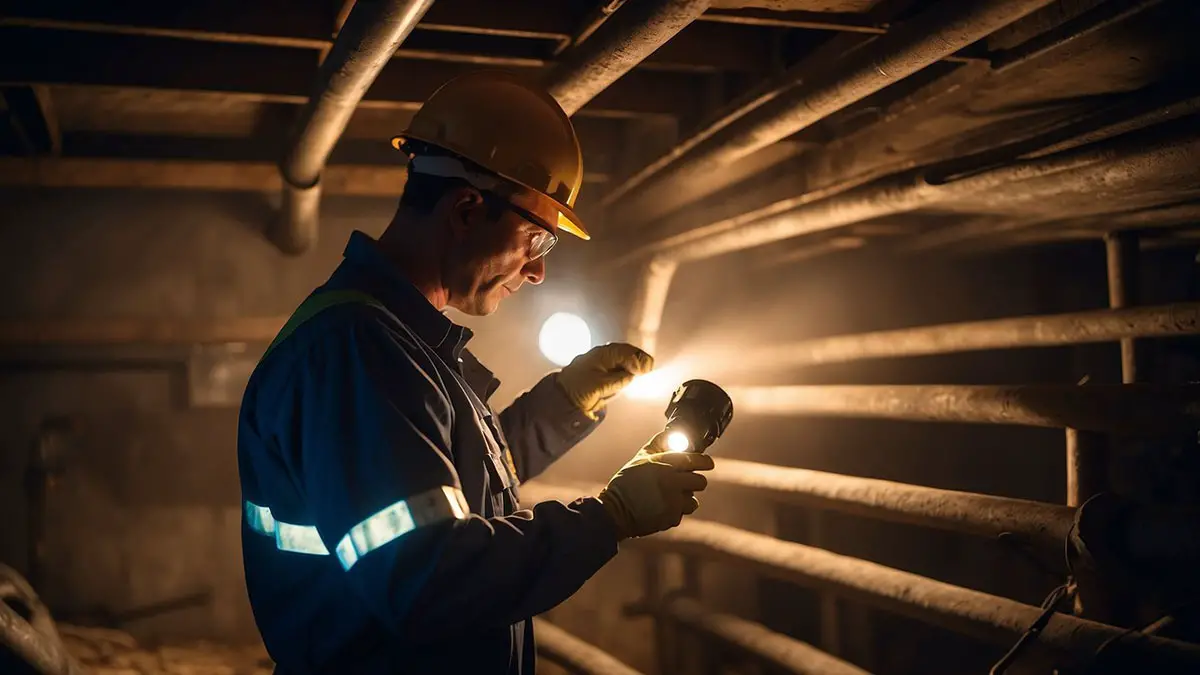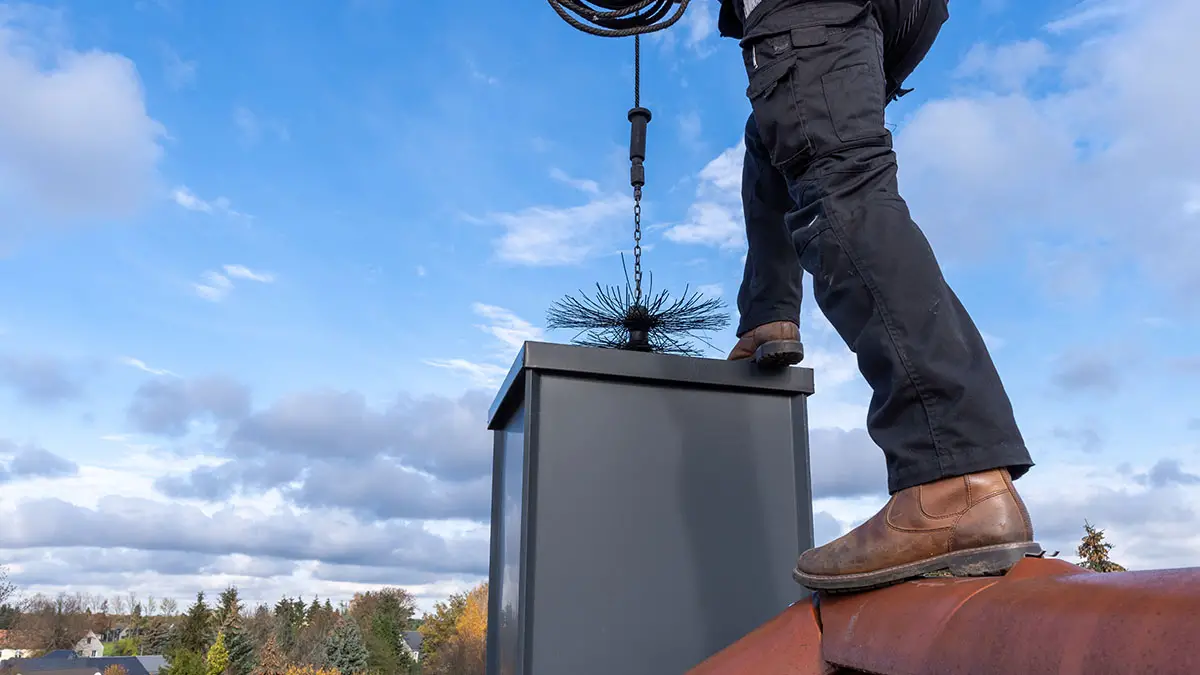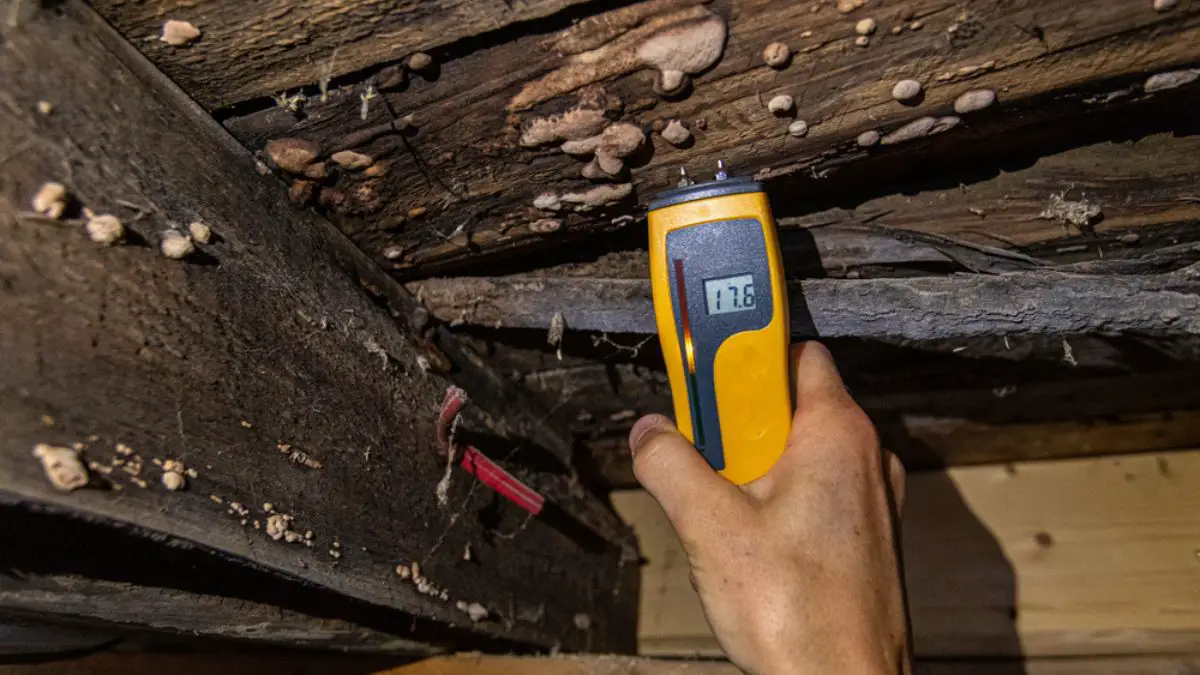Key Takeaways:
- Home inspections are not mandatory but a crucial part of the home buyer’s due diligence.
- Buyers can back out of a purchase offer without penalty if significant defects are found during the inspection.
- Sellers are not obligated to fix everything found during an inspection, but significant issues may lead to renegotiation or buyers walking away.
Home inspections are not universally required in real estate transactions, but they are highly recommended and often play a critical role in buying, selling, and refinancing.
Mortgage lenders don’t usually require a home inspection. However, in some cases, an inspection is required depending on the type of loan being obtained or if the appraiser notes a structural deficiency with the property.
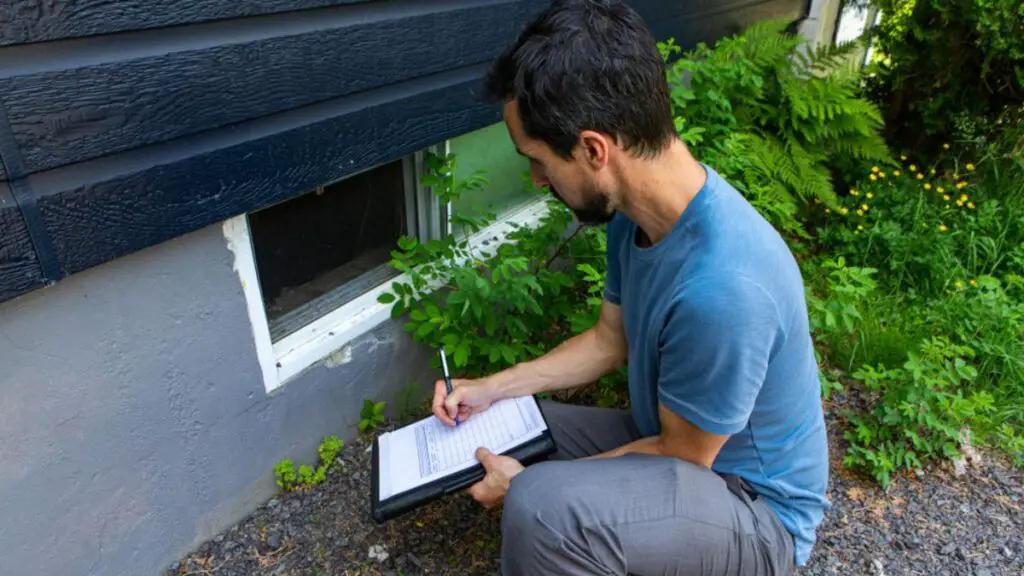
Home Inspections for Buying and Selling a Home
Buying a Home
When buying a home, a home inspection is a critical step in the purchasing process, and many lenders won’t offer financing on a home without one.
A home inspection contingency allows buyers to hire a professional to tell them about major and minor issues with the property. This contingency provides that if significant defects are revealed, the buyer can back out of the purchase offer, free of penalty, within a specific timeframe.
A typical home inspection covers various aspects of the property, including structural components, exterior elements, roofing, plumbing, electrical systems, HVAC, and foundations. While not legally required in every case, it is highly recommended and often a necessary contingency by mortgage lenders.
Selling a Home
A home inspection is not mandatory for sellers but can be beneficial. A seller’s or pre-listing inspection can identify potential issues that could be addressed before listing the property, potentially leading to smoother negotiations and a better final sale price.
Sellers are not obligated to fix anything found during a home inspection. Still, major issues like foundation problems, leaky roofs, or obsolete electrical systems may lead to renegotiation or the buyer walking away.
Sellers should prepare for an inspection by ensuring the exterior is in good condition, checking the electrical system, and ensuring all appliances function correctly.
Home inspectors do not move appliances and furniture. It’s also important to ensure the home is accessible for the inspector, as blocked areas can result in an inaccessible area on their report, which could be a red flag for buyers.
Refinancing a Home
For refinancing, a lender may require an appraisal and the same inspections as it does for financing a new home purchase.
However, lenders do not require a “home inspection,” similar to the one obtained when you bought your home, for either a conventional or FHA mortgage refinance.
In the case of a VA mortgage, a lender may require a new VA appraisal, which includes an inspection component, depending on whether you will be taking cash out.
Home Inspection Requirements for Various Loan Types
Regarding home inspections and appraisals, requirements can vary significantly depending on the type of loan you’re considering. Here’s a detailed look at the requirements for VA, FHA, USDA, Conventional loans, and Refinances:
VA Loans
A home inspection is not required for VA loans; however, a VA appraisal is mandatory.
The appraisal is conducted to ensure the property meets the VA’s Minimum Property Requirements (MPRs), focusing on the home’s safety, soundness, and sanitary conditions.
While the VA loan process does not mandate a home inspection, it is highly recommended that buyers be provided with a comprehensive understanding of the property’s condition.
Importance of Home Inspections for VA Loans
- Home inspections thoroughly review the home’s physical condition, including structure, roof, plumbing, electrical, HVAC, and more.
- They help buyers make informed decisions and negotiate repairs or price adjustments before finalizing the purchase.
- Home inspections can uncover potential issues not identified during the VA appraisal.
VA Loan Appraisal vs. Home Inspection
- VA loans do not require a home inspection but always require a VA home appraisal.
- A VA appraisal assesses the property’s value and ensures it meets the VA’s Minimum Property Requirements (MPRs), focusing on safety, soundness, and sanitary conditions.
- Home inspections are optional but highly recommended for VA loans, as they provide a more detailed evaluation of the home’s condition.
- VA loans may require well water testing for rural properties with a private well water supply to be sure the water is safe to drink.
FHA Loans
FHA loans require an appraisal and an inspection, but the focus is slightly different. The FHA inspection is part of the appraisal process and is conducted by a HUD-approved property appraiser.
The inspection ensures the home meets minimum safety, security, and soundness standards. This includes checking for basic utilities, structural integrity, and the absence of health hazards.
While the FHA provides a detailed inspection checklist, it’s important to note that this inspection is less comprehensive than a standard home inspection. Buyers are encouraged to conduct a separate home inspection for a more detailed assessment.
Homes not meeting HUD minimum standards can still obtain financing under the 203k program. This program allows you to purchase homes that need renovations to meet today’s standards.
FHA Loan Home Inspection Requirements
- FHA loans do not require a home inspection but an appraisal with an inspection component.
- The FHA appraisal checks that the home meets the FHA’s Minimum Property Standards, focusing on safety, soundness, and security.
- Cosmetic or minor deficiencies do not require repairs under FHA guidelines unless they affect the property’s safety, structural soundness, or security.
- FHA loans may require well water testing for rural properties with a private well water supply to ensure the water is safe to drink.
FHA Appraisal vs. Home Inspection
- An FHA appraisal is less comprehensive than a standard home inspection and focuses on the property’s value and basic safety, security, and soundness.
- A standard home inspection provides a detailed evaluation of the home’s condition, including functionality and potential future repairs.
- FHA suggests buyers independently have a home inspection done, even though it’s not required.
USDA Loans
USDA loans, aimed at assisting rural homebuyers, require inspections to ensure that properties meet specific agency standards before loan funds are disbursed.
These standards include the home being modest for the area, structurally sound, and in good repair or capable of being repaired with loan funds. Inspections must be conducted by qualified inspectors, such as members of the American Society of Home Inspectors (ASHI) or the National Association of Certified Home Inspectors (NACHI).
The inspection process for USDA loans is thorough, covering everything from pest inspections to the property’s structural soundness.
Benefits of Home Inspections
- Home inspections are not technically required for USDA loans, but they are highly recommended.
- They help buyers understand the property’s condition and provide options if the home has problems or defects.
Home Inspection Requirements
- Existing dwellings must be modest for the area, structurally sound, functionally adequate, and in good repair or capable of being repaired with loan funds.
- All dwellings must be inspected to ensure they meet USDA standards before the final disbursement of loan funds.
- Inspections cover termites and other pests, plumbing, water and sewage, heating and cooling, electrical systems, and structural soundness.
- The inspection report must be comprehensive and include interior and exterior color photos.
Appraisal vs. Inspection
- USDA loans officially require an appraisal to assess the home’s fair market value, not a home inspection.
- Appraisals for government-backed loans include a look at the property in light of broad health and safety guidelines but are not as in-depth as a home inspection.
- Those specific inspections would be required if the USDA appraisal cites further inspections (e.g., roof, foundation, plumbing, septic tank).
- Individual water systems require a water quality test, and septic tank inspections may be needed based on the appraisal.
203k Renovation Loans
The FHA 203k loan program is designed to help buyers finance the purchase and rehabilitation of a property through a single mortgage. This program is particularly beneficial for purchasing homes that need repairs or renovations.
- 203k Inspections vs. Standard Home Inspections: A 203k inspection does not replace a standard home inspection. While there is some overlap between the two, they serve different purposes. A 203k inspection evaluates the home’s systems and identifies any safety or structural issues that must be repaired per HUD standards. In contrast, a standard home inspection comprehensively evaluates the home’s condition, including safety, functionality, and potential future repairs.
- Role of a 203k Consultant: A 203k consultant, often a certified home inspector, plays a crucial role in the 203k process. They advise clients, ensure the required paperwork is correctly completed, and help homeowners obtain a 203k loan. HUD must approve consultants and meet specific qualifications, including experience as a home inspector or a relevant professional license.
- 203k Consultant Responsibilities: The consultant inspects the property, prepares a feasibility study, architectural exhibits, work write-ups, and cost estimates, and oversees draw request inspections. They ensure the renovation meets FHA’s minimum property standards and the borrower’s needs. Consultants also conduct follow-up inspections for draw approvals.
- Feasibility Study: Before proceeding with a 203k loan, a consultant may complete a feasibility study. This preliminary inspection provides rough estimates of the repairs needed to meet FHA’s minimum property standards and any desired upgrades or replacements by the borrower. This study helps determine the project’s viability within the 203k program.
- Costs and Fees: The fee for a 203k consultant’s services varies based on the cost of repairs and includes the work write-up and specification of repairs. FHA sets these fees and can be financed as part of the 203k loan.
- Benefits of the 203k Program: The 203k program offers a comprehensive solution for buyers interested in home rehabilitation. It combines the purchase price and repair costs into a single loan, simplifying the financing process for homes that require renovation.
- Inspection Process for 203k Loans: Under the 203k program, the buyer qualifies for the loan, finds a suitable property, and has a 203k consultant complete a proposal of necessary and desired repairs. An appraisal follows this to ensure the total cost does not exceed the property’s appraised value after repairs. The loan then proceeds to closing, assuming all lender requirements are met.
Conventional Loans
Conventional loans typically do not require a home inspection, but an appraisal is necessary to determine the property’s value.
The appraisal assesses the home’s general condition and assigns market value, comparing it to similar properties.
While a detailed inspection of the home’s condition for structural issues or defects is not part of the appraisal process, buyers are strongly advised to conduct a separate home inspection.
This independent assessment can reveal potential problems that might not be apparent during the appraisal.
Home Loan Refinances and HELOCs
The requirements for refinances can vary depending on the type of loan being refinanced and the lender’s policies.
Generally, a new appraisal may be required to determine the property’s current value. However, a full home inspection is typically not a standard requirement for refinancing.
Borrowers should check with their lenders to understand the specific requirements for their refinance scenario.
Understanding Home Inspections
When considering purchasing a home, a home inspection is a crucial step. It involves a professional inspector thoroughly examining the property for potential issues. A home inspector is typically certified and has undergone specialized training to spot problems you might not notice.
Why have a home inspection?
- To uncover hidden issues before purchase.
- To provide leverage in price negotiations.
- For peace of mind knowing the home’s condition.
While not always legally required, it’s highly recommended to have a home inspection done for your protection. An inspector will check major components like the roof, foundation, electrical, and plumbing systems. They’ll also look for safety issues, like aluminum wiring, radon gas, or carbon monoxide.
Qualifications to seek in an inspector:
- Licensed: Ensures the inspector meets your state’s requirements.
- Certified: Indicates a commitment to the industry’s standards, often through associations like the American Society of Home Inspectors (ASHI).
- Experience: Experienced professionals may identify issues more readily.
During the inspection:
- You have the opportunity to walk through the home with the inspector.
- Feel free to ask questions to understand the condition of the home better.
- An inspector will not comment on cosmetic issues or provide the cost of repairs.
The Role of Home Inspections in the Buying Process
Home inspections are a critical step in the home buying process, offering a comprehensive assessment of the property’s condition, providing valuable insights through detailed reports, and influencing key financial and legal decisions. They forge a transparent relationship between buyers, sellers, and real estate professionals.
Assessing Property Condition
A thorough home inspection evaluates crucial aspects of a house, such as the electrical system, plumbing, heating, roof, foundation, walls, paint, and even insulation.
Your inspector should investigate the attic, basement, doors, windows, and exteriors to appraise the home’s overall condition, identifying any defects or potential problems.
Inspection Reports and Recommendations
Following the assessment, you receive an inspection report detailing the property’s condition, covering everything from floors to ceilings and ventilation to structure. The recommendations may suggest repairs or replacing certain elements based on their condition.
Legal and Contractual Aspects
The findings of a home inspection can influence the inspection contingency clause in your offer, allowing you to negotiate changes based on the report or even back out if severe issues are discovered. It’s a vital tool for protecting your interests during the pending phase of the buying process.
Financial Considerations and Home Value
Understanding the scope of required repairs impacts not only the sale price but also closing costs and other costs related to ownership. The home inspection cost is an investment in ensuring the value and safety of your prospective home.
Relationship with Real Estate Professionals
Your real estate agent can guide the inspection process and how it fits your strategy. They act as intermediaries between buyers, sellers, and inspectors, ensuring the service supports the purchase effectively.
Pre-Inspection Measures and Checklist
Before the inspector arrives, a home inspection checklist can help you understand what will be reviewed. Ensure easy access to key areas, like the basement, attic, and heating systems, to maximize the service provided.
Post-Inspection Actions
Upon obtaining the inspection report, you must make informed decisions regarding proceeding with the purchase, negotiating the terms, or requesting repairs. This phase is crucial for transforming inspection insights into actionable steps.
Common Misconceptions about Inspections
It’s a misconception that inspections are pass-fail services; they provide a snapshot of the home’s condition during inspection. Another is that all defects need immediate correction. Some issues may be acceptable for your plans and budget, while others necessitate immediate action.
Detailed Components of a Home Inspection
When you schedule a home inspection, it’s essential to understand the thorough examination your property will undergo. This includes various systems, components, and areas of your home, both inside and out.
The inspection checks for structural integrity and the safety and functionality of the home’s systems.
External Analysis
The external analysis of a home inspection scrutinizes the property’s exterior components, such as the roof, foundation, and drainage systems. Your inspector will assess for any defects in the following:
- Roofing: Shingles, flashings, chimneys, vents
- Foundation: Cracks or other structural concerns
- Siding & Paint: Damage, deterioration, possible lead paint
- Exterior Features: Porches, decks, stairs, railings
- Landscape elements affecting the property (e.g., improper grading causing drainage issues)
Internal Inspection
During the internal inspection, inspectors move to the interior elements, examining the walls, ceilings, floors, windows, and doors, ensuring everything operates correctly. Attention will be given to:
- Interior Systems: Electrical outlets and switches, electrical system, plumbing system
- Ventilation: Adequacy and function of the HVAC system, including heating, cooling, and air conditioning
- Potential Hazards: Signs of mold, asbestos, or pest infestations
System and Safety Checks
System and safety checks are crucial for ensuring that your home’s operating systems are efficient and safe for occupants. These checks include:
- Fire Safety: Proper operation of smoke detectors, fireplaces, and chimneys
- Gas and Carbon Monoxide: Inspecting for gas leaks and proper placement of carbon monoxide detectors
- Radon Testing: Optional testing for radon levels can be conducted, especially in areas known for high radon concentrations
Specialized Inspections
Certain conditions or components may require specialized inspections beyond the general home inspection. These include:
- Swimming Pools: Checking the pool structure, pumps, heaters, and safety covers.
- Septic Tanks and Sewers: Assessing the condition and function of waste disposal systems.
- Radon, Mold, Lead, and Asbestos: Specialized testing for hazardous materials when the property age or condition suggests the possibility of such issues.
Understanding the Limitations of Home Inspections
When considering a home inspection, it’s crucial to recognize that they have inherent limitations. An inspection can provide valuable information, but it may not cover everything, and some issues could remain undetected until after you make the purchase.
Items Not Covered by Standard Inspections
Standard home inspections are comprehensive, but they do not account for everything. Personal property, such as appliances and furniture, is typically excluded. Inspectors usually don’t evaluate low-voltage electrical systems or complex electronics.
Elements behind walls, above ceilings, or underneath insulation also go unchecked, potentially hiding issues like mold, pests, or water damage.
Recognizing Potential Hidden Issues
Even a thorough inspection can miss what’s not readily visible or accessible. Hidden issues, like structural flaws within walls or problems with underground pipes, may require specialized evaluations.
It’s important to recognize that an inspection report highlights observable concerns and does not guarantee to discover all potential problems.
Dealing with Undiscovered Problems After Purchase
Should you encounter problems post-purchase not identified in the inspection, weigh the cost of repairs against the option to negotiate with the seller.
As the buyer, understanding the limitations of inspections empowers you to decide whether to pursue additional assessments, set aside a budget for potential repairs, or discuss terms with the seller before finalizing the sale.
Additional Considerations for Buyers and Sellers
Understanding the home’s condition is crucial when engaging in a real estate transaction. Inspections can surface issues that may influence your decisions and strategies for negotiation.
Buyer’s Perspective
As the buyer, you may have an inspection report critical in assessing the potential investment before finalizing your offer.
A detailed inspection can reveal the house’s condition and uncover necessary repairs or replacements that could impact your buying process. When negatives are discovered, you have the leverage to negotiate the price or request closing cost concessions.
Seller’s Preparation for Inspection
As a seller, preparation is key; addressing known issues before listing can improve the condition of your home and streamline the sale.
You should ensure the property description is clear and up-to-date, facilitating a smoother inspection. Proactively making improvements or repairs can enhance your home’s perceived value and may reduce the risk of price renegotiations.
Negotiating After Inspection Findings
Once an inspection outlines the condition and necessary improvements of the house, you’ll need to consider the findings carefully. Both parties should be ready to negotiate.
As a buyer, focus on significant issues that require costly repairs and be prepared to suggest how these might be reflected in the revised offer.
As a seller, be realistic about your home’s condition, offer reasonable concessions, or agree to repair certain items to maintain the deal’s integrity.
Frequently Asked Questions
Is a home inspection mandatory for closing a real estate transaction?
Though not legally mandatory in all cases, a home inspection is typically a critical component of the home-buying process. Sellers and real estate agencies may not require one, but it is highly recommended for your protection before closing a deal.
What are key reasons to have a home inspection before purchasing a house?
A home inspection can reveal hidden issues such as structural damage, faulty wiring, and plumbing problems. This knowledge lets you decide and potentially negotiate repairs or price adjustments.
How does a home inspection differ from a home appraisal?
A home appraisal assesses the property’s value for the lender, while a home inspection evaluates the house’s condition, focusing on safety, function, and maintenance needs.
What are common issues that can be identified during a home inspection?
Common issues discovered during a home inspection include roof damage, HVAC system malfunctions, moisture and mold problems, and electrical safety hazards.
How does a home inspection impact the process of obtaining homeowners insurance?
Insurance companies may require a 4-point inspection for homes over 30 years old or a wind mitigation inspection for homes in coastal areas to identify risks that could lead to future claims. The inspection findings can affect your insurance premiums and coverage availability.
Can the results of a home inspection affect the approval of a mortgage loan?
Lenders may consider the outcome of a home inspection, especially if significant problems are found that could affect the property’s value or safety. This might influence the terms of the mortgage or the loan approval itself.



